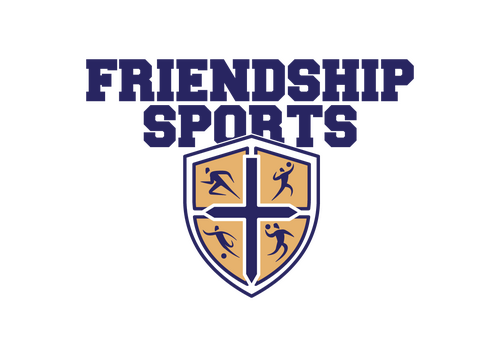FSI History 1986-present
Friendship Sports International (FSI) was incorporated in 1986 as a nonprofit organization founded by Jack King, whose vision was shaped by nearly three decades of sports evangelism. Rooted in the early days of Venture for Victory in the 1950s at Taylor University, Jack also served with Sports Ambassadors, helped start Athletes in Action (AIA) Baseball, and ultimately founded FSI to take the Gospel of Jesus Christ to the world through athletics and partnerships with individuals and churches. Under Jack’s leadership, sports became a powerful avenue for evangelism, discipleship, and global connection. Leadership later passed to his son, Jim King, who led teams for decades to Honduras—first through sports ministry and eventually through the vision to build Camp Monte de Santidad. Built by dozens of church and volunteer teams, the camp has served hundreds through discipleship and became a refuge during Hurricane Mitch. In 2018, Jim’s daughter Katie and her husband Mario moved full-time to Honduras to lead grassroots ministry in La Venta. Matt Wallace joined FSI in 2017, revitalizing sports and campus ministry by leading international teams and developing discipleship opportunities with college students in Grand Rapids. Over the past 25 years, FSI has facilitated more than 150 international trips and dozens of stateside retreats—and the story is still being written.
1986
Friendship Sports International was first incorporated in 1986 as a non-profit corporation through Jack King, founder and President. Jack's vision was based on nearly three decades of sports evangelism. He wanted to take the Gospel of Jesus Christ to the world, primarily through the avenue of athletic events and partnerships with individuals and churches.
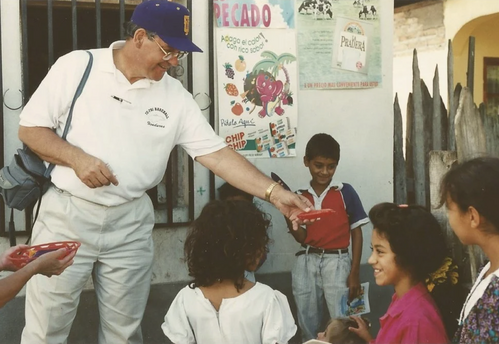
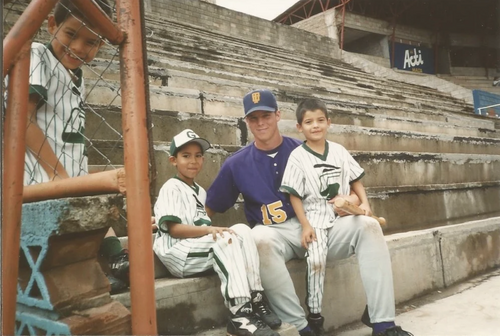
1993
Beginning in 1993, the tools that FSI used for evangelizing athletes and sports-loving people changed. Instead of a general testimony to opposing athletes and spectators, FSI incorporated a more personal strategy of a Gospel presentation to the other player and coaches, usually over a meal. Aside from sports, team members could connect by sharing stories and hearing about the differences in Honduran culture. Sharing their faith and giving an invitation to join in walking with Jesus was a natural way to conclude.
1995
By this time, other changes were taking place within FSI. Jack began to slowly move towards full retirement, and his son Jim was moving into more of a leadership role, becoming the International Director. Jim began to see the difficulties of a small organization becoming spread too thin by traveling to many international countries, and began steering FSI to a smaller number of countries. In 1996, FSI underwent a major transition to concentrate on the nation of Honduras, Central America. Jim believed that by focusing on one nation, FSI could build long-term relationships with local church leaders, schools, and sports federation leaders. Jim also began non-sports ministry as a way to enhance the outreach of the sports teams.
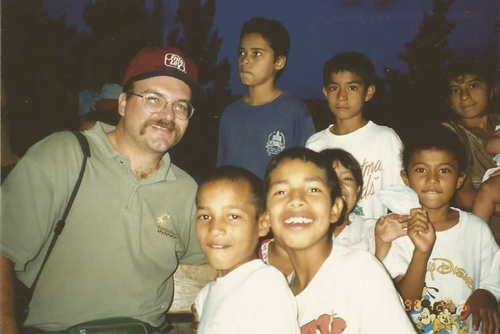
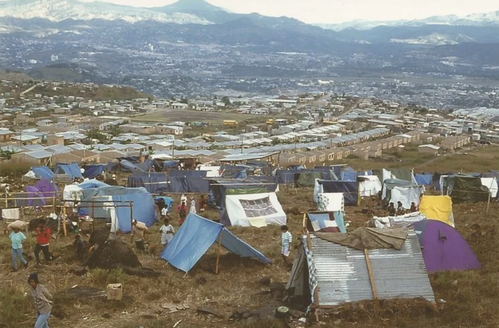
1998
Many of the changes FSI experienced happened after Hurricane Mitch brought devastation to Honduras and shut down all sports ministry for one year. Providentially, FSI had already diversified into the non-sports ministry areas, primarily in building church relations through conferences, humanitarian aid programs, building of a Christian camp, and orphanage ministries. These ministries became important to the relief efforts after Hurricane Mitch, allowing FSI to be on the ground alongside organizations like Samaritans Purse-offering food, clothing, housing, medication, clean water, and financial help.
2005
Just two decades after its creation, FSI had taken over 100 international tours to Honduras with a variety of Christian athletic teams and also non-athletic teams. Staff had also been sent to different Christian universities to coach and lead Bible studies with over ten different sports. By this time, Jim had become a regular speaker, counselor, and invited Christian leader to missions conferences and church events. Continuing a tradition set by his father, Jim continues to find ways to share the Gospel in a variety of settings.
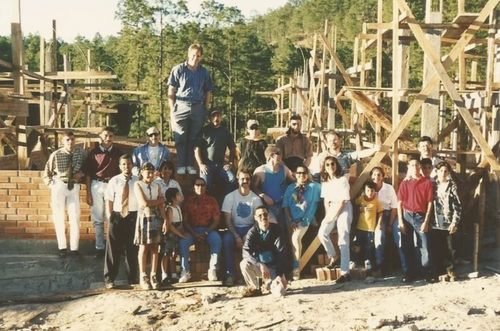
2017 - Present
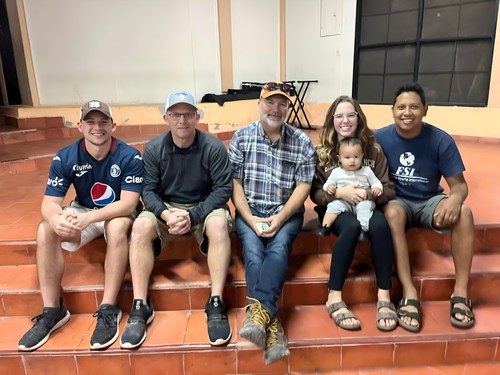
FSI is fully funded by gifts from families, churches, business leaders, philanthropists, humanitarian leaders, and concerned citizens for poverty. Each donation is fully tax-deductible by law, and can be given to a variety of outreach projects, including Honduras Shares, which help indigenous people in Honduras with food, clothing, education, clean water, and micro-business loans.
FSI has expanded to the Wallace family in Grand Rapids, Michigan, adding a new dimension to FSI through local urban sports ministry and international missions work in Honduras, Haiti, and Guatemala. Katie and Mario Velazquez lead the efforts of ministry in Honduras. Finally, Continued sports, humanitarian, building, and conference teams occur throughout each year as well.
FSI has expanded to the Wallace family in Grand Rapids, Michigan, adding a new dimension to FSI through local urban sports ministry and international missions work in Honduras, Haiti, and Guatemala. Katie and Mario Velazquez lead the efforts of ministry in Honduras. Finally, Continued sports, humanitarian, building, and conference teams occur throughout each year as well.
